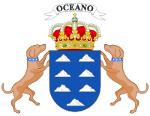Canaries save money with open source
 Canary Islands news site La Provincia reports that the autonomous government of the Canaries is saving €400,000 per year by backing the use of free and open source operating systems and software and avoiding paying licences to multinational companies for the use of programs and their updates. Apparently the autonomous government annual IT costs have reduced from €1,006,500 to €750,000. Roberto Moreno, the general director for telecommunications and new technologies explains that the migration from proprietary to free and open source software means the government is ridding itself of dependency on one vendor because, in this case “the owner is the one who buys it and can make the changes and modifications needed with his own resources and personnel, which is always much cheaper” than being beholden to an outside company.
Canary Islands news site La Provincia reports that the autonomous government of the Canaries is saving €400,000 per year by backing the use of free and open source operating systems and software and avoiding paying licences to multinational companies for the use of programs and their updates. Apparently the autonomous government annual IT costs have reduced from €1,006,500 to €750,000. Roberto Moreno, the general director for telecommunications and new technologies explains that the migration from proprietary to free and open source software means the government is ridding itself of dependency on one vendor because, in this case “the owner is the one who buys it and can make the changes and modifications needed with his own resources and personnel, which is always much cheaper” than being beholden to an outside company.
Moreno, who is a professor of Computer Science and Artificial Intelligence at the University of Las Palmas de Gran Canaria (ULPGC), states that the objective is shown by the current legislature’s wishes to introduce these changes to reduce expenditure, given the current economic crisis and the lack of funds in the region’s coffers.
The next step planned by the Canaries government is to replace the ubiquitous MS Office suite currently used with a free and open source alternative, which is most likely to be Apache OpenOffice. That change will involve some 30,000 desktops and will save the public purse a fair few euros more.
 Just a few days after it was reported that scores of donated Linux laptops were languishing unused in Romania’s schools (
Just a few days after it was reported that scores of donated Linux laptops were languishing unused in Romania’s schools (




